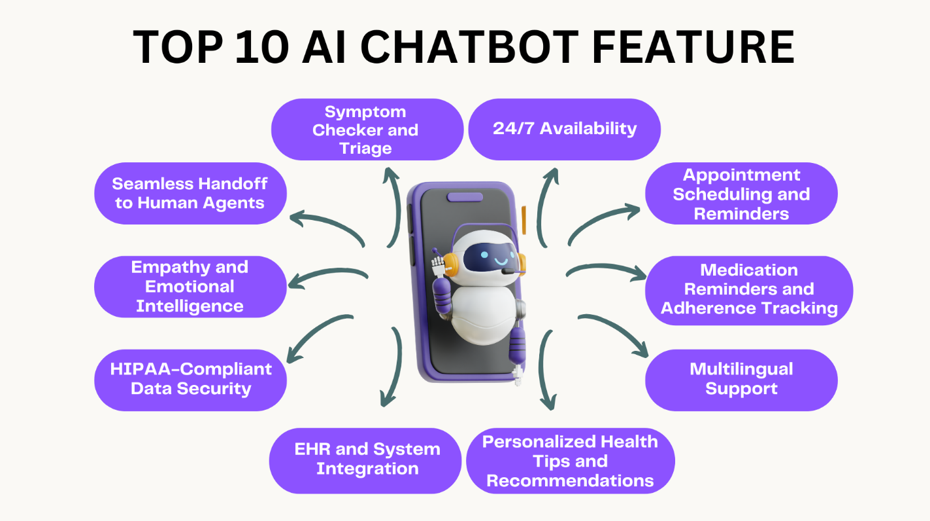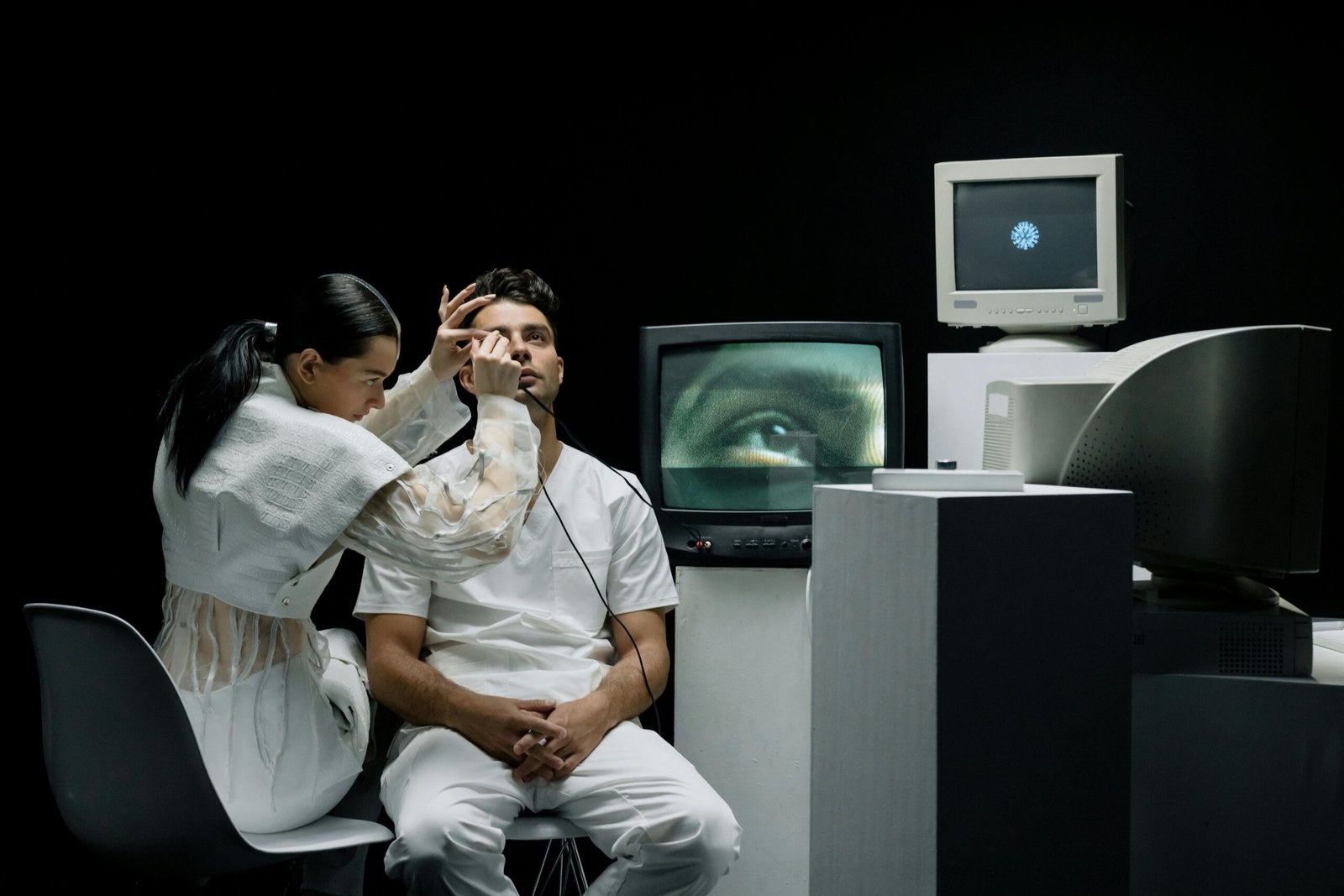As artificial intelligence (AI) continues to revolutionize healthcare, AI-powered virtual nursing assistants (VNAs) are emerging as transformative tools. These intelligent systems provide 24/7 nursing support, assist with chronic disease management, and streamline care delivery by performing routine tasks—empowering patients and alleviating healthcare providers’ workloads. The result is more efficient, patient-centric care that bridges the gap between in-person and remote healthcare.
What is an AI-Powered Virtual Nursing Assistant?
An AI-powered virtual nursing assistant (VNA) is a conversational AI system that interacts with patients through chat, voice, or apps to deliver healthcare services. These systems are trained to understand patient needs, track health data, provide reminders, and offer health-related advice, often integrated with telemedicine and wearable technology platforms.
These assistants are not a replacement for nurses but serve as extensions of healthcare teams, enabling better care coordination and continuous patient monitoring.
Core Capabilities of AI-Powered Virtual Nursing Assistants
- 24/7 Availability: Continuous support, even outside clinic hours.
- Health Monitoring & Alerts: Tracks vital signs through wearables and raises alerts for abnormal readings.
- Medication Management: Provides reminders, tracks adherence, and alerts patients or caregivers if medications are missed.
- Symptom Checker: Engages patients in real-time symptom tracking and suggests appropriate actions or next steps.
- Personalized Health Coaching: Offers tailored fitness routines, nutritional advice, and mental health support.
- Appointment Scheduling & Reminders: Automates scheduling of follow-up appointments and sends reminders.
- Telehealth Support: Gathers patient information before virtual consultations and assists during and after appointments.
Use Cases of AI-Powered Virtual Nursing Assistants
Chronic Disease Management
- AI-powered VNAs track glucose levels for diabetic patients and blood pressure for those with hypertension.
- They alert healthcare providers when abnormal readings are detected, enabling timely interventions.
- Example: A diabetic patient receives daily blood sugar tracking reminders, with AI-generated insights sent to the care team.
-
Elderly Care & Remote Monitoring
- VNAs offer daily check-ins to monitor seniors living independently, reminding them to take medications and tracking any signs of deterioration.
- Example: An AI-powered nursing assistant alerts caregivers if an elderly person misses medications or exhibits early signs of health issues.
-
Post-Surgery Recovery Support
- VNAs assist patients during recovery by monitoring symptoms, providing wound care instructions, and sending rehabilitation reminders Robotic Surgery.
- Example: After knee surgery, a patient receives reminders to perform exercises and track pain levels. If the pain worsens, the AI assistant suggests contacting the doctor.
-
Mental Health Support
- VNAs offer real-time emotional support through chat, mindfulness exercises, and mood tracking.
- Example: A patient with anxiety can use a VNA for guided breathing exercises and receive encouragement throughout the day.
-
Virtual Consultations & Telehealth Integration
- Before consultations, VNAs gather patient symptoms and histories, allowing doctors to focus on diagnosis and treatment.
- Example: A telehealth platform integrated with a VNA collects a patient’s health history, speeding up the consultation process.
Benefits of AI-Powered Virtual Nursing Assistants
For Patients:
- Improved Access: 24/7 access to healthcare support, especially valuable for rural or underserved populations.
- Continuous Monitoring: VNAs ensure consistent care between appointments, reducing hospital readmissions.
- Empowerment: Patients receive personalized insights, becoming more engaged in managing their health.
For Healthcare Providers:
- Reduced Workload: Automates repetitive tasks like reminders and symptom tracking, freeing up time for complex care.
- Early Intervention: Continuous monitoring identifies issues early, allowing timely interventions.
- Improved Efficiency: Pre-consultation data collection reduces time spent on administrative tasks during appointments.
Challenges in Implementing AI-Powered VNAs
Data Privacy and Security: Ensuring compliance with data protection laws such as HIPAA.
AI Bias and Errors: AI systems must be carefully trained to avoid biases that could affect patient care.
Patient Adoption: Not all patients, especially older ones, may be comfortable using virtual assistants.
Integration with Existing Systems: VNAs must work seamlessly with Electronic Health Records (EHR) and telemedicine platforms.
AI Technologies Powering VNAs
Natural Language Processing (NLP): Enables VNAs to understand patient inquiries and respond conversationally.
Machine Learning: Continuously improves recommendations based on patient interactions and data trends.
Predictive Analytics: Identifies potential health risks by analyzing patterns in patient data.
Wearable Integration: Collects real-time data from devices like smartwatches and fitness trackers.
Future of AI-Powered VNAs
Predictive Care with AI
AI-powered VNAs will leverage predictive analytics to anticipate health risks and suggest preventive measures before symptoms worsen.
-
Multilingual and Cultural Adaptability
Future VNAs will offer multilingual support and adapt to different cultural contexts, enhancing accessibility for diverse populations.
-
Emotional Intelligence Integration
VNAs will become more empathetic, capable of recognizing patient emotions and offering personalized support based on mood or mental state virtual assistant nurse.
-
Augmented Reality (AR) and Virtual Reality (VR) Integration
Incorporating AR/VR technology, VNAs will offer immersive rehabilitation exercises or guided meditation, enhancing patient engagement.
Examples of AI-Powered Virtual Nursing Assistants
Molly by Sensely: An AI-powered nurse offering symptom tracking and patient check-ins.
Catalia Health’s Mabu: A personal health assistant that engages with patients to support chronic disease management.
Care Angel: Provides virtual nursing support for elderly care, focusing on medication adherence and wellness.
Pros and Cons of AI-Powered Virtual Nursing Assistants
Pros of AI-Powered Virtual Nursing Assistants
24/7 Availability
- Benefit: VNAs provide continuous support, ensuring patients have access to nursing care outside of hospital or clinic hours.
- Impact: Reduces dependency on human resources for routine tasks and offers timely assistance in emergencies.
-
Reduced Workload for Healthcare Providers
- Benefit: VNAs handle routine tasks, such as appointment scheduling, reminders, and patient check-ins.
- Impact: Allows nurses and doctors to focus on more complex care, increasing productivity and reducing burnout.
-
Improved Patient Engagement and Adherence
- Benefit: Automated reminders for medications, follow-up appointments, and health routines improve patient adherence.
- Impact: Helps patients stay on track with care plans, reducing the likelihood of complications and hospital readmissions virtual assistant nurse.
-
Personalized Care and Continuous Monitoring
- Benefit: AI-powered VNAs can collect and analyze data from wearable devices, providing real-time, personalized health insights.
- Impact: Enables early detection of potential health risks and ensures timely interventions.
-
Cost-Effective Healthcare
- Benefit: VNAs reduce the need for in-person visits and lower the burden on healthcare infrastructure.
- Impact: Decreases operational costs for healthcare providers and travel costs for patients.
-
Telehealth Integration
- Benefit: VNAs streamline telemedicine by collecting patient data and summarizing symptom histories before consultations.
- Impact: Enhances the efficiency and effectiveness of virtual healthcare services.
-
Support for Chronic Disease and Elderly Care
- Benefit: VNAs assist with chronic disease management and offer daily check-ins for seniors, promoting independent living.
- Impact: Improves patient outcomes and reduces the need for frequent hospital visits.
Cons of AI-Powered Virtual Nursing Assistants
Privacy and Security Concerns
- Challenge: VNAs handle sensitive patient data, raising concerns about data security and compliance with privacy laws like HIPAA.
- Impact: Any breach of data could compromise patient trust and result in legal or financial consequences virtual assistant nurse.
Technology Dependence
- Challenge: Patients and providers become dependent on technology, which may malfunction or require constant updates.
- Impact: System downtime or technical issues could disrupt care delivery.
Potential for Reduced Human Interaction
- Challenge: Overreliance on AI systems may limit meaningful human interaction, which is crucial for patient trust and empathy.
- Impact: Patients may feel isolated or less supported if human engagement is reduced.
Conclusion
AI-powered virtual nursing assistants are revolutionizing healthcare by providing continuous, personalized care, supporting chronic disease management, and improving patient engagement. These systems enhance both patient outcomes and healthcare efficiency, offering 24/7 support and reducing the burden on medical staff. As technology advances, VNAs will play an increasingly central role in the future of healthcare, offering proactive, data-driven care that is accessible to all.
The integration of AI-powered VNAs with wearable devices, telehealth, and predictive analytics will set new standards for patient-centric, technology-enabled care, ensuring seamless support, improved health outcomes, and a more sustainable healthcare system.









